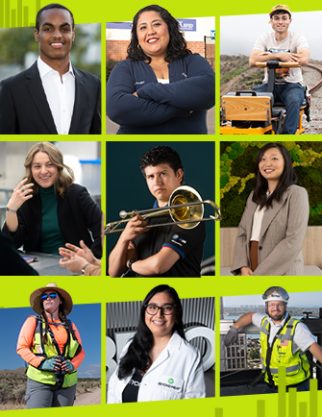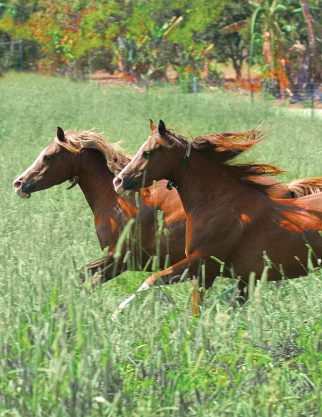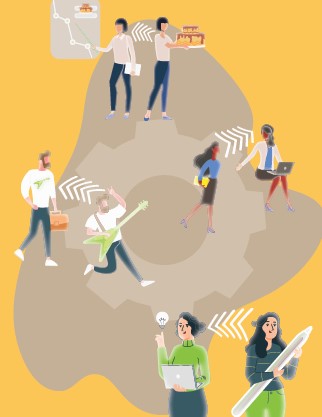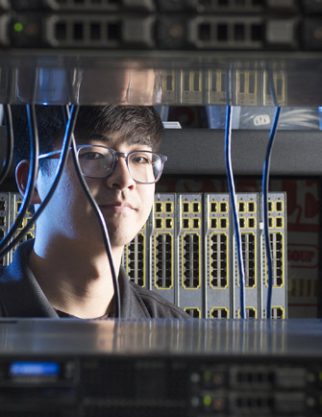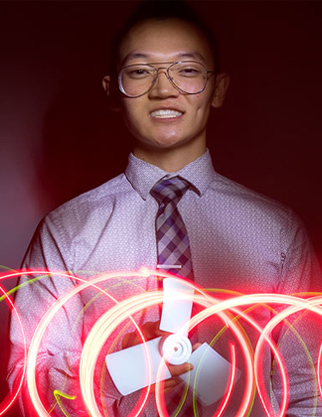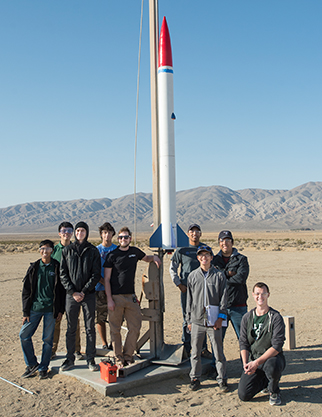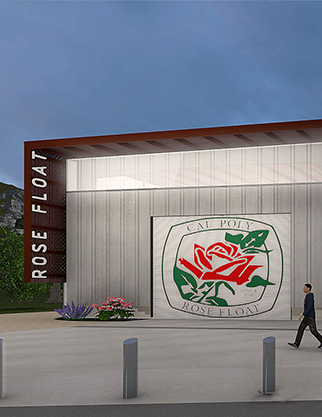Fashion Forward
Alumnus Jesus Mancera Transforms Recycled Plastic into Streetwear
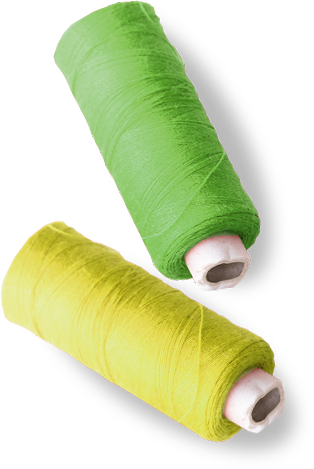
As the adage goes, one man’s trash is another’s man treasure.
For Jesus Mancera, those plastic bottles discarded into trash bins aren’t just treasure — they’re fashion.
Mancera (’17, management and human resources) is the founder of Piruli Designs, a streetwear company that takes recycled plastic and transforms it into T-shirts and sweatshirts. Mancera’s desire to make clothing out of plastic was born during competitions sponsored by Cal Poly Pomona’s Student Innovation Idea Lab (iLab).
“Reusing stuff that is already around is something that we should be doing, but we’re not,” he says. “We can give consumers and end users an actual product that they can wear every day and share with other people the story of it.”
Mancera planned to pursue engineering at Cal Poly Pomona, but after struggling with high-level calculus, the 25-year-old switched to business. He knew he wanted to start his own business after taking a class on entrepreneurship from former Assistant Professor Nelson Pizarro.
In 2016, Mancera applied for the iLab’s Startup Challenge. His team designed a windshield wiper for motorcycle helmets that was attached to a glove, but Mancera soon learned that an established company already had a similar product on the market.
“It’s about who does it better, not who does it first,” Mancera remembers Pizarro’s telling him.
His six-student team didn’t get picked for the 2016 challenge, but he vowed to return. The next year, he put together a group of students he met at a club event. Calling themselves Plastic Crafted, the team proposed making sunglasses out of recycled plastic. They didn’t win the Startup Challenge, but did win another campus competition in 2017 hosted by the Office of Undergraduate Research.
That initial success inspired Mancera. After learning how costly it is to make eyeglasses out of plastic, he turned his attention to manufacturing T-shirts from the recycled material.
Reusing stuff that is already around is something that we should be doing, but we’re not…
In the summer of 2017, he and two others teamed up, launched Piruli Design and entered a Pasadena Angels investors workshop contest to pitch their idea for plastic T-shirts . The trio finished second.
Today, co-founders Mancera and Nick DeOrian, a Cal State Fullerton graphic design alumnus, continue to push the clothing line.
“He works at a very fast pace,” DeOrian says of Mancera. “Every day, when I think we’re done working, he is ready for the next step. He’s all in. We’re both in it to win it. He cares just as much as I do.”
Sewing Goodwill and Success
In a small garage at the townhouse-style apartment complex where Mancera lives with his family in Westminster, he and DeOrian have managed to squeeze in some shelving and a computer workstation amid the bikes suspended from hooks and the boxes of personal items. It’s where the pair fulfills orders and prepares them for shipping, packing T-shirts into brown-paper cylinders emblazoned with the company’s logo. Mancera often delivers the packages to the nearby post office on his bike.
Meanwhile, in factories in Haiti and Guatemala, workers sew T-shirts and sweatshirts using fabric and thread that’s made from grounded-down recycled plastic. It takes around eight 16- and 24-ounce bottles to make one shirt. The imprinting is done in California, but most of the stitching takes place in these countries left decimated when athletic apparel giants like Nike and Adidas pulled out in search of cheaper labor and left behind abandoned factories, he says.
Making the clothing in Haiti and Guatemala gives companies like Piruli Designs an opportunity to help provide the people with a living wage, Mancera adds.
His company benefits from the workers’ expertise.
“We figured these people have generations of experience in making clothing,” he says. “Give them a new way. It doesn’t matter what kind of thread you give them. They are still going to be able to stitch.”
On weekends, Mancera and DeOrian hit up trade shows and other events where they can speak to clothing buyers and show them their gear. The reaction is something Mancera really enjoys.
“People say, ‘Oh wow, these are really soft,’ and I tell them the story behind it,” he says. “We always love saying they are 100 percent plastic and they ask, ‘What? Can I feel it?’”
Besides online and event sales, Piruli Designs is selling its shirts at the Bronco Bookstore at Cal Poly Pomona.
Brian Alexander-Fetterman, the Bronco Bookstore assistant general manager, says that students in the Apparel Merchandising and Management program have had their clothing line AM Squared in the store for several years, but this marks a first for a product coming out of the iLab.
…We’re both in it to win it. He cares just as much as I do.
He and Olukemi Sawyerr, the interim assistant vice president for academic innovation, began talking two years ago about possibly putting iLab products on the store shelves.
“We’ve been working on it for a while, and we’ve had a few trials,” Alexander-Fetterman says. “This is the one that worked out.”
Sales haven’t been bad for the shirts, but Alexander-Fetterman says the next step should be for Piruli Designs to increase their marketing efforts by pushing what sets their shirts apart from the standard fare.
Sawyerr says that Mancera’s drive and determination made it easy for her to advocate for his products to be sold at the bookstore. She adds that it’s important for her to be open to students’ ideas and try to support students in a variety of ways.
“Jesus is beyond passionate,” Sawyerr says. “When he talks, that’s all I need. If a person has passion, I put all my weight behind them.”
Piruli Designs hopes to eventually sell its clothing at all the CSU bookstores. But Mancera knows it will take time to get there.
“The most challenging aspect of being an entrepreneur is not growing as fast as you want to grow,” he says. “For me, I want to run and I want to be in every single store right now, but it’s not possible. There’s just one of me … I see everything as a steppingstone to the next step to get me where I want to be.”
Published June 3, 2019
How to create fashion from plastic bottles


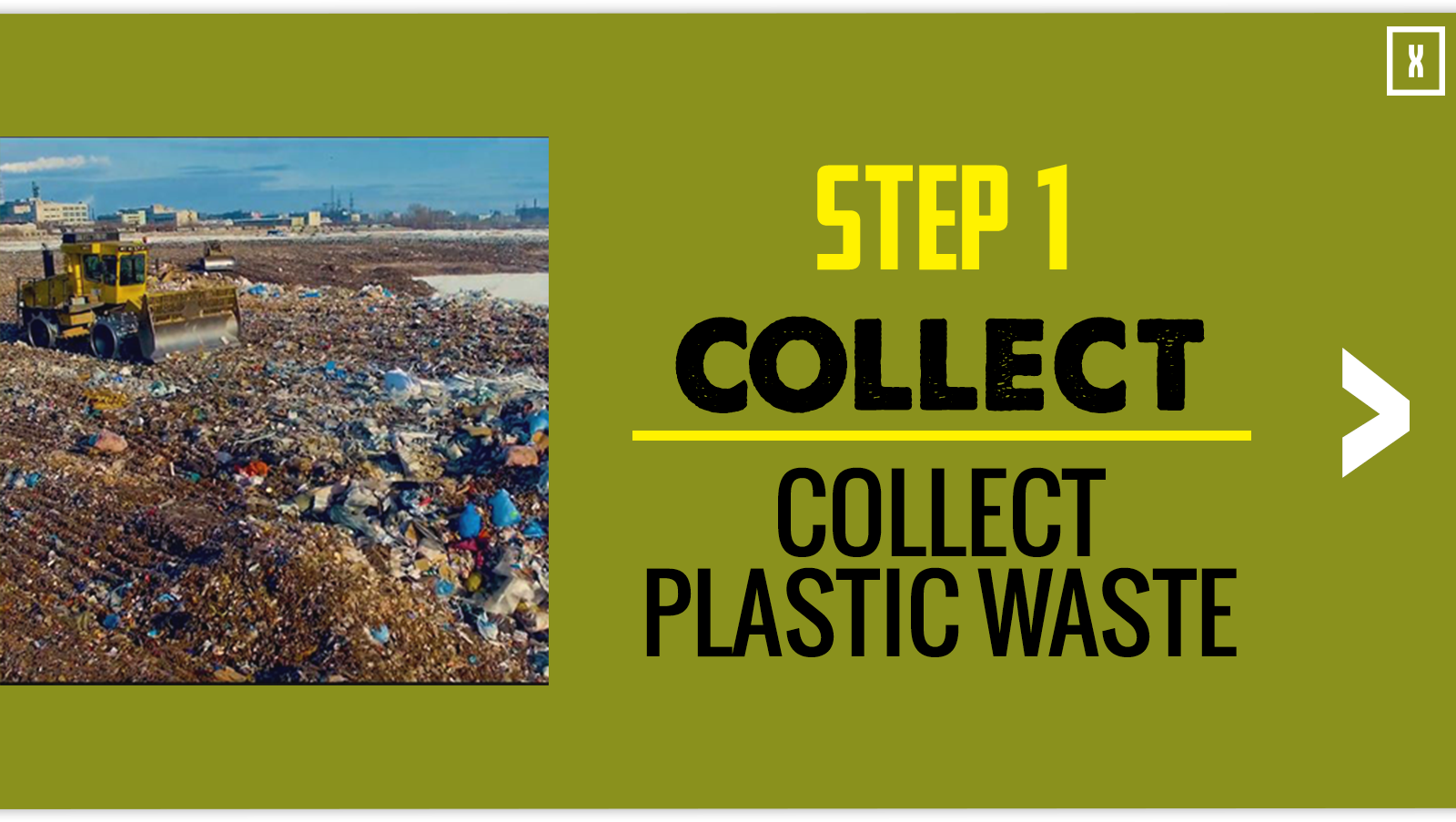


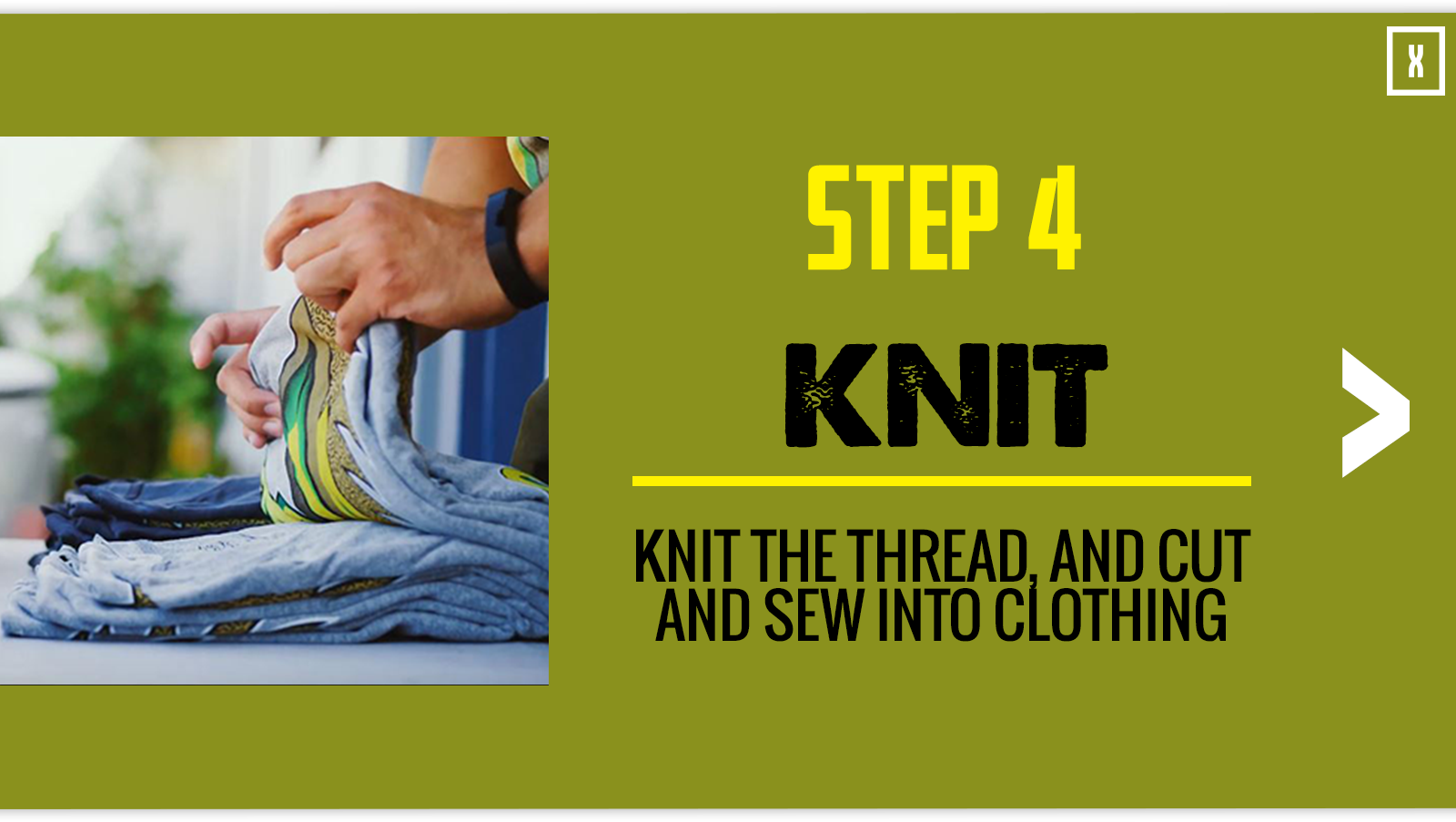
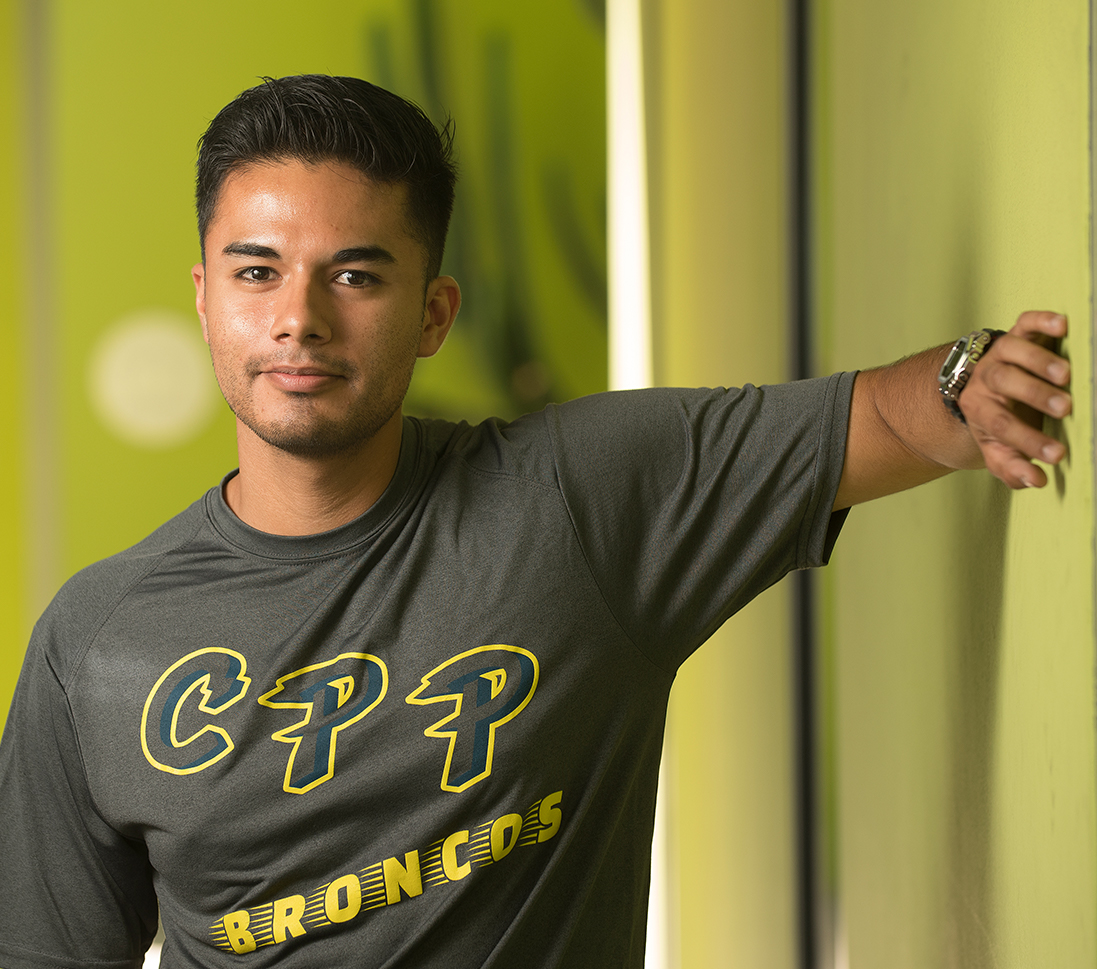
From Dollar Sodas...
Growing up in Garden Grove as the child of Mexican immigrant parents, Mancera learned early in life about the importance of hard work. His mother cleans houses. His father works in a factory that sells cleaning supplies to schools.
“My dad always pushed me towards education,” he says. “He felt education was the key to success. I had a different mindset. I always wanted to be an entrepreneur.”
Mancera’s first idea for making a few extra bucks to supplement his $20 monthly allowance came from his father, who would load up a cooler with ice and Gatorade and sell the drinks to coworkers. Mancera tried something similar, buying sodas for 25 cents and selling them to his middle school and high school peers for $1. He also operated a bicycle repair business as a teen and later bought and sold motorcycles and cars.
In college, he began trading stocks, buying shares of Activision, an American video game publisher, for $21 per share and watching the value increase to $40.
He bought AT&T stock on the advice of a professor.
“It was just about learning. I would ask professors what stocks they thought were good,” he says. “It’s about finding better ways to work smarter. My whole goal is work smarter, not harder.”
Mancera also had some run-of-the-mill jobs — delivering pizzas, washing dishes at a busy restaurant, valeting cars at the indoor water park Great Wolf Lodge with DeOrian — all while keeping his entrepreneurial dream in sight.
“I used it as motivation,” he says.
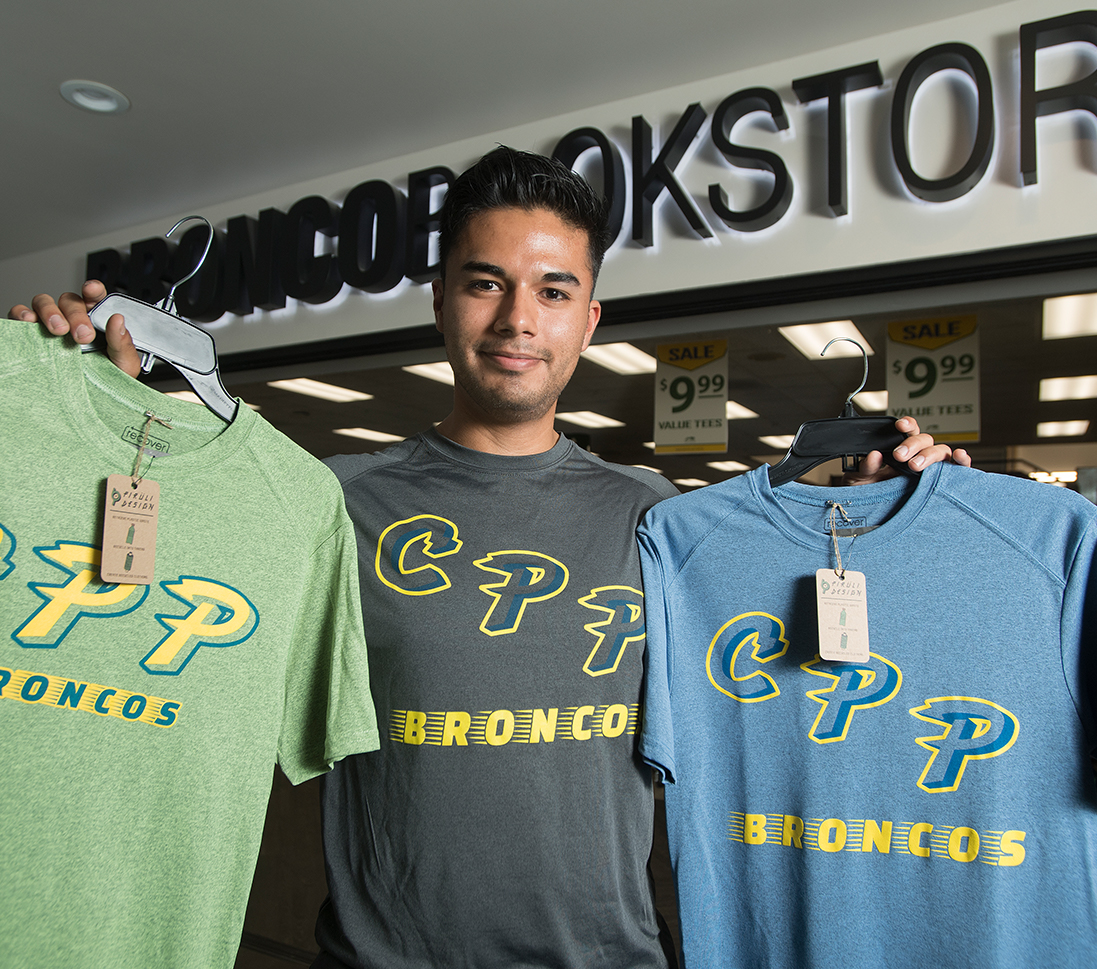
Down To Business
During his senior year at Cal Poly Pomona, Mancera worked with an engineering professor and another student on a project for Northrop Grumman that involved finding new ways to recycle rainwater and reuse it. The trio worked with civil engineers, chemical engineers and landscape architects to develop a plan to help the city of San Fernando capture water for reuse for outdoor landscaping.
During a presentation on the project, Mancera met his current boss, Jim Fruth, who serves on Cal Poly Pomona’s College of Engineering Dean’s Leadership Board. Fruth, who owns Placentia-based Fruth Plastics, offered Mancera a job as a process improvement engineer. Fruth Plastics manufactures custom plastic products for various industries, including for aerospace, medical and pharmaceutical needs. He started out full time but now works part time so that he can focus on his business.
Mancera found a mentor in Fruth, who shared how he built his company, encouraged Mancera’s plans for the recycled plastic T-shirts and offered advice and resources. Some of the grinding of the plastic for the thread needed to make the shirts is done at Fruth.
“He has this entrepreneurial spirit in everything he does,” Mancera says. “He’s a kid at heart. He has always helped and pushed me to get to where I am now.”
Fruth, who started his business 32 years ago with two employees and now has 100, recalls being impressed with Mancera when they sat down next to each other at a leadership board dinner. That initial meeting led to a job interview and a position at the company.
“We’ve tasked him with a multitude of projects from entrepreneurship to engineering to quality control,” Fruth says of Mancera. “He has met expectations in every way plus. He’s very outgoing, personable and driven.”
Fruth connected with Mancera’s idea for the plastic T-shirts because his company has two recycling plants for film on site, and he too believes it is important to reduce plastic waste.
“I’m an environmentally conscious guy, and plastics are certainly one of the most recyclable man-made materials in our waste stream,” he says. “Jesus’ efforts are another step forward in making finished products from a waste product, and our society, our planet, need forward-thinking people like him.”
